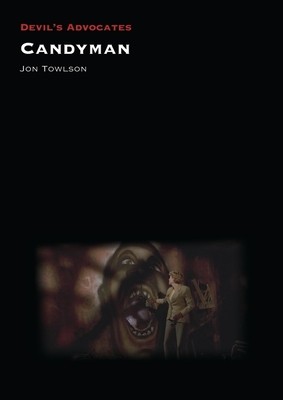
- We will send in 10–14 business days.
- Author: Jon Towlson
- Publisher: Auteur Publishing in Partnership with Liverpool University Press
- ISBN-10: 191132554X
- ISBN-13: 9781911325543
- Format: 13.7 x 18.8 x 1 cm, minkšti viršeliai
- Language: English
- SAVE -10% with code: EXTRA
Reviews
Description
When Candyman was released in 1992, Roger Ebert gave it his thumbs up, remarking that the film was "scaring him with ideas and gore, rather than just gore." Indeed, Candyman is almost unique in 1990s horror cinema in that it tackles its sociopolitical themes head on. As critic Kirsten Moana Thompson has remarked, Candyman is "the return of the repressed as national allegory" the film's hook-handed killer of urban legend embodies a history of racism, miscegenation, lynching, and slavery, "the taboo secrets of America's past and present."
In this book, Jon Towlson considers how Candyman might be read both as a "return of the repressed" during the George H. W. Bush era, and as an example of nineties neoconservative horror. He traces the project's development from its origins as a Clive Barker short story ("The Forbidden"); discusses the importance of its gritty real-life Cabrini-Green setting; and analyzes the film's appropriation (and interrogation) of urban myth. The two official sequels (Candyman: Farewell to the Flesh [1995] and Candyman: Day of the Dead [1999]) are also considered, plus a number of other urban myth-inspired horror movies such as Bloody Mary (2006) and films in the Urban Legend franchise. The book features an in-depth interview with Candyman's writer-director Bernard Rose.EXTRA 10 % discount with code: EXTRA
The promotion ends in 22d.00:50:46
The discount code is valid when purchasing from 10 €. Discounts do not stack.
- Author: Jon Towlson
- Publisher: Auteur Publishing in Partnership with Liverpool University Press
- ISBN-10: 191132554X
- ISBN-13: 9781911325543
- Format: 13.7 x 18.8 x 1 cm, minkšti viršeliai
- Language: English English
When Candyman was released in 1992, Roger Ebert gave it his thumbs up, remarking that the film was "scaring him with ideas and gore, rather than just gore." Indeed, Candyman is almost unique in 1990s horror cinema in that it tackles its sociopolitical themes head on. As critic Kirsten Moana Thompson has remarked, Candyman is "the return of the repressed as national allegory" the film's hook-handed killer of urban legend embodies a history of racism, miscegenation, lynching, and slavery, "the taboo secrets of America's past and present."
In this book, Jon Towlson considers how Candyman might be read both as a "return of the repressed" during the George H. W. Bush era, and as an example of nineties neoconservative horror. He traces the project's development from its origins as a Clive Barker short story ("The Forbidden"); discusses the importance of its gritty real-life Cabrini-Green setting; and analyzes the film's appropriation (and interrogation) of urban myth. The two official sequels (Candyman: Farewell to the Flesh [1995] and Candyman: Day of the Dead [1999]) are also considered, plus a number of other urban myth-inspired horror movies such as Bloody Mary (2006) and films in the Urban Legend franchise. The book features an in-depth interview with Candyman's writer-director Bernard Rose.

Reviews